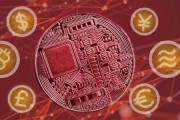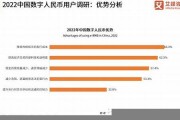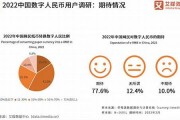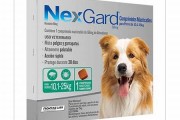
Digital currencies, also known as cryptocurrencies, are a type of virtual currency that uses cryptography for security. They are decentralized, meaning they are not controlled by any government or financial institution, and transactions are recorded on a public ledger called the blockchain. So, the question arises: what programming language is used to write digital currencies?
The answer is simple: it depends on which digital currency you are referring to. Each digital currency has its own programming language and software development kit (SDK). For example, Bitcoin uses a programming language called C++ and a SDK called the Bitcoin Software Development Kit (BSDL). Ethereum, on the other hand, uses a programming language called Solidity and a smart contract platform called the Ethereum Virtual Machine (EVM).
However, there are some general principles that apply to most digital currencies. First, they use a consensus algorithm to validate transactions and maintain the integrity of the blockchain. Second, they use cryptographic techniques to secure transactions and prevent double-spending. Third, they use peer-to-peer network architecture to enable users to send and receive digital currency without the need for intermediaries like banks.
In addition to these technical aspects, digital currency also has a unique set of social and economic implications. For example, it has the potential to disrupt traditional banking systems and enable greater financial inclusion for people who are unbanked or underbanked. It can also be used for illegal activities such as money laundering and terrorism financing if not properly regulated.
Overall, while the specific programming languages and technologies used to write digital currency may vary, the underlying principles and implications of this emerging technology are complex and far-reaching. As more people adopt digital currency and new applications emerge, it will be important for policymakers, regulators, and industry stakeholders to work together to ensure that it is developed and used in a safe, secure, and sustainable manner.










评论列表
顶!顶!顶!https://img.qupojie.cn/
2024年08月13日 06:03楼主很有艺术范!http://8zwp1n.https://www.weimaitu.com/
2024年08月13日 06:01很给力!https://ios.qupojie.cn/
2024年08月13日 06:01突然觉得楼主说的很有道理,赞一个!https://www.okmadautoparts.com/products/suspension-parts/2330
2024年08月13日 06:00这一年啥事没干,光研究楼主的帖子了!https://www.okmadautoparts.com/products/brake-pads/1836
2024年08月13日 05:59看在楼主的面子上,认真回帖!https://www.okmadautoparts.com/products/brake-shoes/1361
2024年08月13日 05:57读了楼主的帖子,顿时马桶就通了。。。https://okmadintl.com/ehtml/product/799.html
2024年08月13日 05:56看帖、回帖、拿分、走人https://www.weimaitu.com/13.html
2024年08月13日 05:56楼主英明!https://www.msl.wang/shoulu/a35317f3ebbcabc75b28.html
2024年08月13日 05:51突然觉得楼主说的很有道理,赞一个!https://www.msl.wang/shoulu/ba3927ea4516e92621f4.html
2024年08月13日 05:47看了这么多帖子,第一次看到这么高质量内容!https://www.telegramvt.com/telegram/7367.html
2024年08月13日 05:47刚分手,心情不好!http://sb3.zhijian.me
2024年08月13日 05:45很经典,收藏了!http://4s4.zhijian.me
2024年08月13日 05:45论坛的帖子越来越有深度了!https://www.msl.wang/shoulu/76ce5da92b5652e54958.html
2024年08月13日 05:44这么好的帖子,应该加精华!https://www.qupojie.cn/category-hj.html
2024年08月13日 05:44楼主很有激情啊!http://9cvba.zhijian.me
2024年08月13日 05:42楼主是好人!https://www.hzkeji.cn/pifu/27853.html
2024年08月13日 05:41突然觉得楼主说的很有道理,赞一个!http://p27kmt.zhijian.me
2024年08月13日 05:39楼主的头像能辟邪啊!https://www.telegramvt.com/telegram/7110.html
2024年08月13日 05:37楼主是在找骂么?http://k5h9os.zhijian.me
2024年08月13日 05:37顶顶更健康!https://www.msl.wang/shoulu/f5e2e6dcd746474eaa71.html
2024年08月13日 05:27很有看点!https://www.msl.wang/shoulu/755e889006495d3a4916.html
2024年08月13日 05:24这位作者的文笔极其出色,用词精准、贴切,能够形象地传达出他的思想和情感。http://qvq.https://www.weimaitu.com/
2024年08月13日 05:23好好学习楼主的帖子!https://www.msl.wang/shoulu/edc37f24df0b3e112605.html
2024年08月13日 05:17楼主就是我的榜样哦https://www.msl.wang/shoulu/29cd92a0adbf001518e3.html
2024年08月13日 05:16灌水不是我的目的!https://okmadintl.com/ehtml/news/202.html
2024年08月13日 05:12收藏了,改天让朋友看看!https://okmadintl.com/ehtml/news/244.html
2024年08月13日 05:12很有看点!https://okmadintl.com/ehtml/product/1380.html
2024年08月13日 05:07楼上的这是啥态度呢?https://okmadintl.com/ehtml/product/1485.html
2024年08月13日 05:07看了这么多帖子,第一次看到这么经典的!https://okmadintl.com/ehtml/product/2641.html
2024年08月13日 04:57文章论点明确,论据充分,说服力强。http://r3bbbv.https://www.weimaitu.com/
2024年08月13日 04:56网页的加载速度非常快,不会影响用户体验。https://m.hhxiazai.com/android/kpyx/27441.html
2024年08月13日 04:54这么经典的话只有楼主能想到!https://www.qupojie.cn/category-exe.html
2024年08月13日 04:50突然觉得楼主说的很有道理,赞一个!https://m.hhxiazai.com/android/btsy/28958.html
2024年08月13日 04:45吹牛的人越来越多了!https://www.hzkeji.cn/pifu/20610.html
2024年08月13日 04:45楼主就是我的榜样哦https://www.okmadautoparts.com/products/brake-pads/2088
2024年08月13日 04:42楼主的头像是本人吗?https://www.okmadautoparts.com/products/brake-pads/2058
2024年08月13日 04:42听楼主一席话,省我十本书!https://www.okmadautoparts.com/products/brake-pads/1935
2024年08月13日 04:42灌水不是我的目的!http://170.www.hhxiazai.com
2024年08月13日 04:39